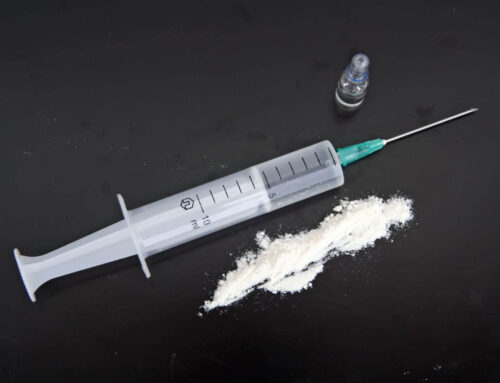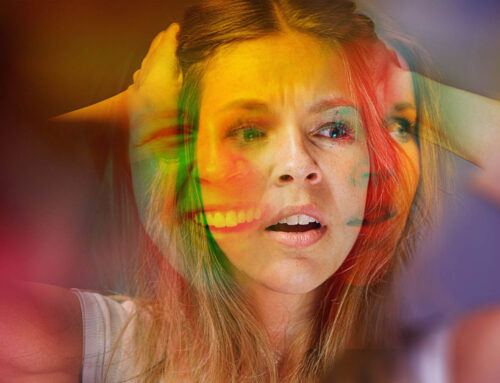
Depression or Depressive Disorder
Depression or depressive disorder is the most common mental health condition, characterized by prolonged periods—lasting at least two weeks—of persistently low or sad mood (often irritability in children and adolescents) or a loss of interest and pleasure in most activities. It has a significant negative impact on various aspects of daily life, including functioning, relationships with family, close ones, and others.
Depression is also accompanied by a range of other symptoms and challenges, such as feelings of unwarranted or excessive guilt, pessimism, low self-esteem, insecurity, impaired concentration, frequent thoughts of death or suicide, sleep disturbances (insomnia or excessive sleepiness), changes in appetite (decreased or increased), leading to weight loss or gain, sexual dysfunctions (reduced libido), and persistent fatigue or lack of energy.
According to the World Health Organization (WHO), around 300 million people worldwide suffer from depression, including approximately 25 million children and adolescents, with a prevalence twice as high among women compared to men. Depression can affect nearly all age groups, especially those who have experienced psychological trauma (e.g., the loss of a loved one) or socio-economic difficulties, such as unemployment or low income.
Depression is one of the leading causes of disability and suicide, particularly among individuals aged 15–29. Only half of those with depression recover from further depressive episodes, while the remainder experience recurrent relapses, and about 15% develop a chronic, treatment-resistant course of the disorder. In addition to socio-economic factors, other determinants of depression prognosis include neurochemical changes in the brain and specific genetic variations.
Treatment for depression involves both psychological approaches (e.g., cognitive therapy, cognitive-behavioral therapy, interpersonal therapy, family therapy) and medication (antidepressants). Antidepressants are the preferred treatment option, particularly for moderate and severe depression. Studies show that the effectiveness of antidepressants is much higher when treatment begins in the earlier stages of depression. Therefore, at the first signs of depression, it is advisable to seek help and consultation from a specialist.
Psychiatric Consultation: If you need to consult a psychiatrist or receive psychiatric assistance regarding depression, choose a specialist and book an appointment. During the consultation, our psychiatrist will help address mental health issues and identify suitable solutions.
Bipolar Disorder
Bipolar disorder is a serious mental illness characterized by alternating episodes of depression, hypomania or mania, and mixed episodes in which symptoms of both depression and (hypo)mania are present simultaneously.
During depressive episodes, individuals experience, for at least two weeks, symptoms such as low mood, sadness, tearfulness, loss of interest or pleasure in daily activities, appetite changes, sleep disturbances, feelings of guilt or low self-worth, slowed movements or speech, difficulty concentrating, and thoughts of death or suicide.
During hypomanic or manic episodes, individuals exhibit excessively elevated mood or euphoria, unusual energy and vigor, increased activity, agitation or irritability, heightened self-esteem or grandiosity, overly familiar behavior, rapid speech, distractibility, frequent shifts between topics or projects, and reduced need for sleep (feeling rested and energized after only 3–4 hours of sleep). Hypomania or mania is also marked by impulsive or reckless behavior, such as risky business ventures, gambling, dangerous driving, or impulsive sexual activity, without understanding the consequences, such as financial loss or injury. The distinction between hypomania and mania lies in symptom duration (mania lasts at least a week, while hypomania persists for at least four consecutive days) and severity (mania is generally more apparent, often requiring hospitalization and potentially accompanied by psychosis, such as hallucinations or delusions of grandeur).
The causes of bipolar disorder are not fully understood, but it is believed to result from a combination of genetic, biological, and environmental factors, with heredity playing a significant role (80% of cases are attributed to genetic influences). Clinical assessment and diagnosis of bipolar disorder involve a thorough psychiatric evaluation, a review of medical history, and ruling out other causes of mood changes, such as physical illnesses or substance use (alcohol or drugs).
Bipolar disorder is a chronic condition; however, many individuals with this diagnosis can lead full and productive lives with timely and adequate treatment, along with awareness and understanding of their condition. Treatment primarily involves medication (mood stabilizers, such as lithium, anticonvulsants, and antipsychotics) and supportive psychotherapy to help patients manage symptoms and improve quality of life.
Psychiatric Consultation: If you need to consult a psychiatrist or receive psychiatric assistance regarding bipolar disorder, choose a specialist and book an appointment. During the consultation, our psychiatrist will help address mental health issues and identify suitable solutions.
Bipolar Disorder
Bipolar disorder is a serious mental illness characterized by alternating episodes of depression, hypomania or mania, and mixed episodes in which symptoms of both depression and (hypo)mania are present simultaneously.
During depressive episodes, individuals experience, for at least two weeks, symptoms such as low mood, sadness, tearfulness, loss of interest or pleasure in daily activities, appetite changes, sleep disturbances, feelings of guilt or low self-worth, slowed movements or speech, difficulty concentrating, and thoughts of death or suicide.
During hypomanic or manic episodes, individuals exhibit excessively elevated mood or euphoria, unusual energy and vigor, increased activity, agitation or irritability, heightened self-esteem or grandiosity, overly familiar behavior, rapid speech, distractibility, frequent shifts between topics or projects, and reduced need for sleep (feeling rested and energized after only 3–4 hours of sleep). Hypomania or mania is also marked by impulsive or reckless behavior, such as risky business ventures, gambling, dangerous driving, or impulsive sexual activity, without understanding the consequences, such as financial loss or injury. The distinction between hypomania and mania lies in symptom duration (mania lasts at least a week, while hypomania persists for at least four consecutive days) and severity (mania is generally more apparent, often requiring hospitalization and potentially accompanied by psychosis, such as hallucinations or delusions of grandeur).
The causes of bipolar disorder are not fully understood, but it is believed to result from a combination of genetic, biological, and environmental factors, with heredity playing a significant role (80% of cases are attributed to genetic influences). Clinical assessment and diagnosis of bipolar disorder involve a thorough psychiatric evaluation, a review of medical history, and ruling out other causes of mood changes, such as physical illnesses or substance use (alcohol or drugs).
Bipolar disorder is a chronic condition; however, many individuals with this diagnosis can lead full and productive lives with timely and adequate treatment, along with awareness and understanding of their condition. Treatment primarily involves medication (mood stabilizers, such as lithium, anticonvulsants, and antipsychotics) and supportive psychotherapy to help patients manage symptoms and improve quality of life.
Psychiatric Consultation: If you need to consult a psychiatrist or receive psychiatric assistance regarding bipolar disorder, choose a specialist and book an appointment. During the consultation, our psychiatrist will help address mental health issues and identify suitable solutions.
https://www.nimh.nih.gov/health/topics/bipolar-disorder
Psychiatrist Consultation: Panic Disorder, Social Anxiety Disorder, Generalized Anxiety Disorder, Phobias
Panic Disorder Anxiety disorders, as a group, are among the most common mental health issues. On average, one in four people experiences an anxiety disorder at some point in their lives. One reason for the high prevalence of anxiety disorders is the fact that fear is an inherent characteristic of all living organisms, including the brain, with an evolutionarily significant function: the ability to respond to danger, activate survival mechanisms, and prepare the body for fight or flight in threatening situations. In other words, every person is naturally predisposed to fear and anxiety. Another reason for the widespread nature of anxiety disorders is that their onset, unlike bipolar disorder, schizophrenia, or neurodevelopmental disorders, depends more on stressful factors and life difficulties than on heredity or genetic variations. Given the inevitability of encountering stress from the earliest moments of life, it is not surprising that people of all ages are susceptible to anxiety disorders. Women, however, are twice as likely to suffer from anxiety disorders compared to men.
Panic Disorder, also referred to as “episodic paroxysmal anxiety” or “vegetative-vascular dystonia,” is characterized by recurrent panic attacks (episodes of intense fear or discomfort) that occur suddenly, without a clear reason, and are therefore unpredictable. Panic attacks typically peak within a few minutes and last around 10–15 minutes, though the sense of anxiety may persist for an hour or more. Because panic attacks are unpredictable, individuals often develop a fear of future attacks, leading to demoralization and feelings of despair over their inability to prevent them. Consequently, depression and hypochondria (fear of having or developing a serious illness such as a heart attack or asthma) are common comorbid conditions with panic disorder. If panic attacks occur in specific situations or locations typical of agoraphobia—such as in public transport or stores—the individual may begin to avoid such places, experience significant distress, or only venture there with a trusted companion.
Most Common Symptoms During Panic Attacks:
- Rapid or accelerated heartbeat
- Sweating
- Tremors or shaking
- Difficulty breathing or feeling of choking
- Chest pain or discomfort
- Nausea or stomach upset
- Dizziness, unsteadiness, lightheadedness, or faintness
- Derealization (feeling that surroundings are unreal)
- Depersonalization (feeling detached from oneself)
- Fear of losing control or going crazy
- Fear of dying or fainting
- Hot flashes or chills
- Numbness or tingling sensations
Panic disorder has a fluctuating course, varying in severity: some may experience panic attacks a few times a year, while others experience them several times a day. Due to the acute and sudden nature of the symptoms, many individuals initially interpret them as life-threatening physical illnesses and consequently seek emergency medical help before consulting a psychiatrist or psychotherapist. Although panic disorder tends to diminish with age, its negative impact on mental health and quality of life warrants professional intervention at its onset or recurrence.
Social Anxiety Disorder Also known as social phobia, this condition involves intense fear or anxiety about one or more social situations in which the individual believes they may be judged (criticized, negatively evaluated, or rejected) by others or face embarrassment or humiliation (e.g., losing control over themselves, their body, or behaving foolishly in public). Although the individual may recognize the excessive and unreasonable nature of their fear, they often struggle to manage their anxiety and symptoms.
Common Situations That Trigger Fear or Anxiety in Social Anxiety Disorder:
- Public speaking
- Conversations with colleagues or classmates
- Interactions with strangers
- Being the center of attention or performing in public (e.g., eating, drinking, reading)
- Participating in small groups (e.g., parties, meetings, classrooms)
- Using public restrooms
In feared social situations, individuals often experience symptoms similar to those of panic attacks (e.g., rapid heartbeat, sweating, trembling, weakness), as well as blushing, fear of vomiting, or urgent restroom needs. The fear of social situations can be so intense that even thinking about them induces anxiety, leading to either significant stress or complete avoidance. In severe cases, avoidance results in social isolation. Since social anxiety disorder typically develops in early childhood (ages 5–7) or adolescence (rarely after age 25), it is often dismissed as excessive shyness or introversion. Like panic disorder, social phobia may diminish over time, but without professional intervention, it can lead to low self-esteem, depression, substance abuse, and diminished functioning in personal and social life.
Generalized Anxiety Disorder (GAD) GAD manifests as persistent, excessive worry or anxiety about everyday events and problems, such as work, finances, family, or baseless premonitions of impending troubles, lasting for weeks or months. In addition to general anxiety symptoms like rapid heartbeat, sweating, trembling, dizziness, difficulty breathing, or chest discomfort, common complaints include:
- Constant nervousness
- Irritability
- Muscle tension
- Inability to relax
- Difficulty concentrating
- Heightened startle response
- Lump-in-throat sensation or swallowing difficulties
- Trouble falling asleep due to worries
Middle-aged individuals are most prone to GAD, likely due to increasing daily responsibilities, obligations, and decision-making pressures characteristic of this life stage. Burnout syndrome often serves as a precursor to GAD, which, without timely prevention, specialist intervention, or rehabilitation, quickly develops into a chronic, relapsing condition.
Phobias or Specific Phobias Phobias are the largest and most common group of anxiety disorders, characterized by irrational and uncontrollable fear of specific situations or objects. The list of phobic triggers is extensive but traditionally divided into the following groups:
- Animal-related (e.g., spiders, insects, dogs)
- Environmental (e.g., heights, storms, water)
- Blood-related (e.g., needles, injections, invasive medical procedures)
- Situational (e.g., airplanes, elevators, confined spaces)
- Other (e.g., choking, vomiting)
A distinct type of phobia is agoraphobia—an intense fear of situations where escape might be difficult or help unavailable in case of a panic attack, illness, or public embarrassment, such as:
- Public transportation
- Crowds
- Being alone outside the home (e.g., in stores, theaters, or queues)
- Traveling alone
Phobias tend to have a chronic course. While avoidance of feared situations or objects may minimize symptoms, confronting them or anticipating exposure often leads to severe fear, anxiety, and distress. Phobias typically emerge early, most commonly between ages 7 and 10, often learned through observation of others’ fears, persisting into adulthood.
Treatment of Anxiety Disorders The two primary and effective methods for treating anxiety disorders are pharmacological approaches (psychopharmacology) and psychotherapy. Although psychotherapy is considered the preferred or first-line method, especially for treating phobias without direct pharmacological indications, panic disorder, social anxiety disorder, and generalized anxiety disorder often require pharmacological intervention, either initially or alongside psychotherapy. This is primarily due to neurobiological and neurochemical brain changes associated with anxiety disorders, which require appropriate medications, particularly antidepressants, to normalize. Antidepressants not only restore disrupted neurochemical balance but also enhance the functioning of brain structures involved in specific anxiety disorders, thus paving the way for more effective psychotherapy. Patients with anxiety disorders often report, “I understand the excessive and irrational nature of my fear or anxiety, but I can’t control it.” Properly selected pharmacological treatment helps manage fear and anxiety, thereby facilitating the therapeutic effect of psychological interventions.
Nonetheless, “talk therapy” alone can sometimes provide significant and immediate relief before medication use. Explaining the phenomenon of anxiety (e.g., panic attacks or phobias) and its associated catastrophic beliefs often initiates the recovery process. The most effective psychological approaches for anxiety disorders include cognitive-behavioral therapy, interpersonal therapy, psychodynamic therapy, and family therapy. Among antidepressants, selective serotonin reuptake inhibitors (SSRIs) are the first-line choice for treating panic disorder, social anxiety disorder, and generalized anxiety disorder. Dosage and type are tailored individually, with a general recommendation of at least six months of treatment. For severe anxiety, particularly during the initial stages of antidepressant therapy, sedatives (e.g., Xanax, Diazepam, Lorazepam) may be used short-term under medical supervision, as they carry a high risk of abuse and dependence. Combining them with alcohol, opioids, or other drugs can lead to serious consequences, including death. Therefore, it is crucial to follow psychiatric instructions when using sedatives.
Psychiatrist Consultation If you need to consult a psychiatrist or seek psychiatric help for anxiety disorders, select a specialist and book an appointment. During the consultation, our psychiatrist will help you understand your mental health concerns and find suitable solutions.



